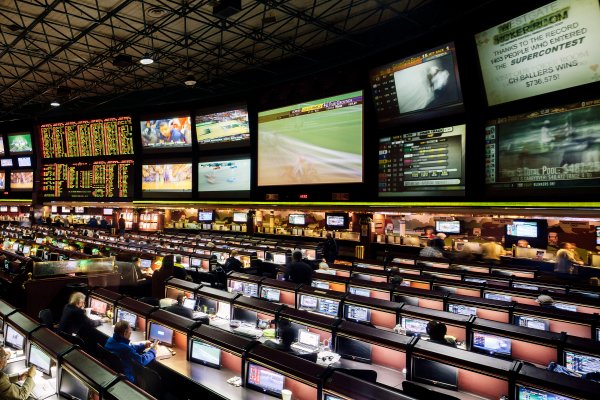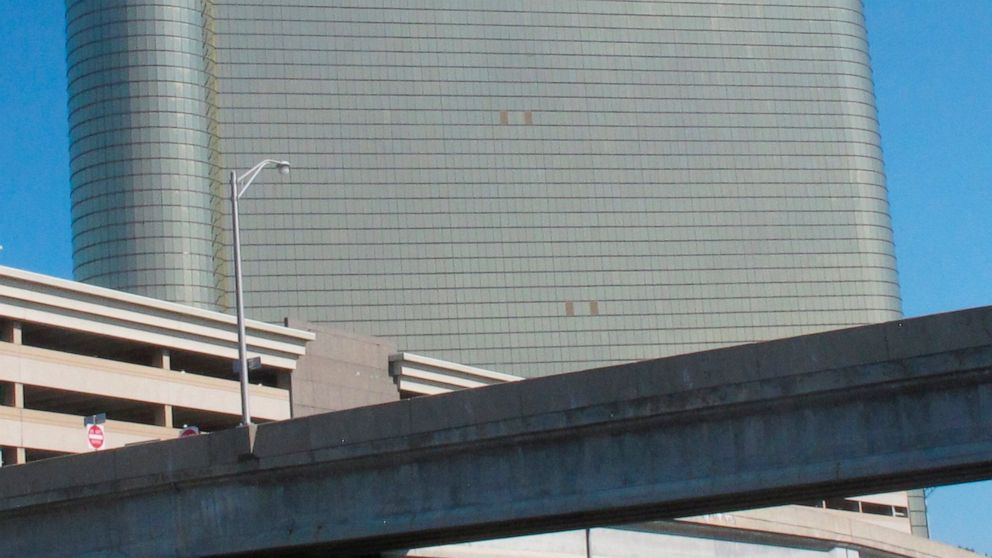Sports Gambling Atlantic City
Thanks to sports betting, new life could be coming to the closed Atlantic City Race Course(Image: Thomas Franklin/The Record) Property owner Greenwood ACRA purchased the track in 2001 for $15 million.
Sports Betting In Atlantic City New Jersey has been the most aggressive state in pushing for the expansion of state-regulated sports betting legalization, and due to PASPA's repeal, they host state-licensed sports wagering options. Six of eleven Atlantic City Casinos are either in or about to enter bankruptcy. All the main new casino projects have been cancelled. The gaming revenue is way down and that revenue is a key.
NJTV News Business Correspondent Rhonda Schaffler spoke with Nicholas Amato, an attorney at Genova Burns in Newark. Amato was the former executive director of the New Jersey Casino Reinvestment Development Authority and a past president of the Casino Association of New Jersey. He spoke about the impact the Super Bowl will have on legalized sports betting in New Jersey.
Schaffler: This is really going to be the Super Bowl of sports betting — legal sports betting — here in New Jersey. How’s the state going to do?



Amato: Terrific, we’re going to be beat Nevada.


Schaffler: Beat Nevada?
Amato: Last year Nevada did about $158 million. I think New Jersey could do $200 million.
Schaffler: Why?
Amato: That’s called a handle. That’s not the total win.
Schaffler: Right, so, why do you think New Jersey stands a chance to win?
Atlantic City Electric
Amato: Well I think New Jersey has so many sports enthusiasts. You have all the team — baseball, football. This is the biggest event in football history, the Super Bowl. Everybody wants to play in the Super Bowl. And now we have internet gaming, we have mobile gaming, so it makes it very convenient. You can do it from your house, all right. And there are so many of what they call proposition bets, or novelty bets. You can bet on how long the national anthem is going to take, whether or not a player is going to take a knee, you can bet how many times Tom Brady may or may not get sacked, how many times he’s going to get hit. They’re called novelty or proposition bets.
Schaffler: This certainly explains the rush to get all of these sports books up in time for the weekend. Casinos know it’s a moneymaker.
Amato: Sure, and the racetracks. You have Monmouth and Meadowlands. It’s going to be very, very exciting for the people of New Jersey, and for Atlantic City, and for Monmouth and for the Meadowlands.
Schaffler: What do you think sports gambling is going to do beyond Super Bowl weekend for New Jersey’s economy, for places like Atlantic City, which, in the past, we’ve tried to see a resurgence there?
Amato: It’s going to be a rocket.
Schaffler: A rocket. You’re so enthusiastic about it.
Amato: Yeah. It’s going to be a rocket. I mean, first we had the internet, and that brought back Atlantic City from where it was, like a revitalization. Look at the advertisement of the Golden Nugget, how well it did with internet gaming. Now you have sports betting, OK? Sports betting is probably extremely exciting because of all the teams — don’t forget, you have the New Jersey market, New York, Philadelphia, Connecticut. Right now, all the teams that comprise that. It’s amazing.
Schaffler: But what about the fact that there is going to be an increase in competition? Other states are getting in the sports betting game. So we have this early advantage, if you will, but how do we stay competitive against the other states?
Amato: By giving a better product. You’re going to have — right now, there’s eight states that have sports wagering, OK. Eventually, probably, New York is going to have it. They’re going to have it now in their upstate casinos, but they don’t have it really anywhere close by. Meadowlands right now has almost a monopoly. The point is that you’ve got to keep offering a better and better product, make people interested in what you have to offer, make it exciting and I think that Jersey is going to lead the way.
Schaffler: You have a lot of experience in the past, in terms of the ins and outs of casinos in Atlantic City. What are they going to do right this time?
Amato: Well, right now, you know, some of it was their fault, some of it wasn’t — the recession, Pennsylvania coming, they’re estimating Pennsylvania. Right now the city government is back on track. They got the tax structure going, they have to get the government back on track. Once you have a solid foundation, you have tremendous executives running the casinos and they’re name is to make money for themselves and for Atlantic City because a better Atlantic City makes a better casino.
Schaffler: And how confident are you that the regulators will stay on top of this burgeoning sports betting business. There have been some fines levied. There’s been some underage gambling. Do you think we’re going to be able to stay on top of the growing industry?
Sports Gambling Atlantic City
Amato: We’ve stayed on top. That’s never been a real issue. We have probably one of the greatest regulatory systems in the country — the New Jersey Division of Gaming Enforcement by Director Rebuck. It’s terrific, and they have a geotechnical location system. I don’t know if you know about it, but, for example, if someone is trying to bet from Pennsylvania in New Jersey, they’re not allowed in. They can see them on this giant screen and they’re kept out.